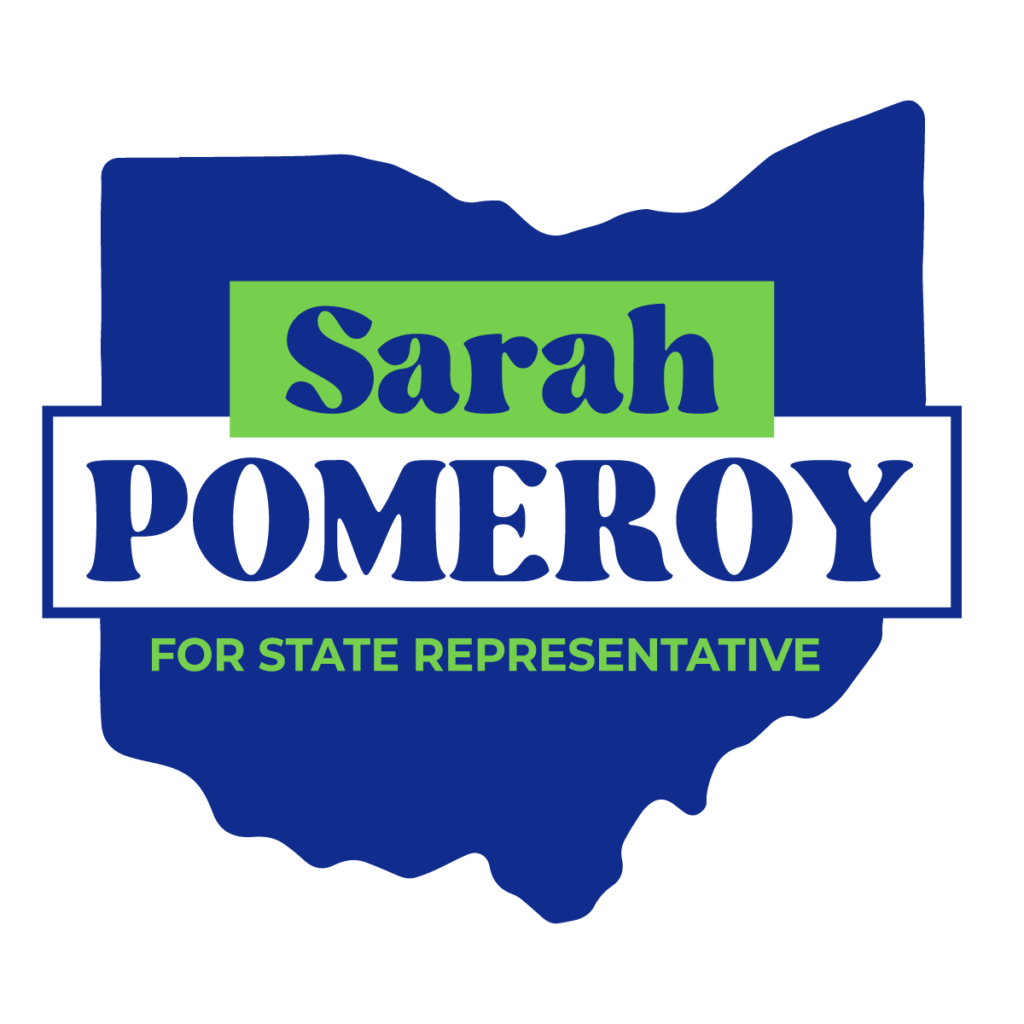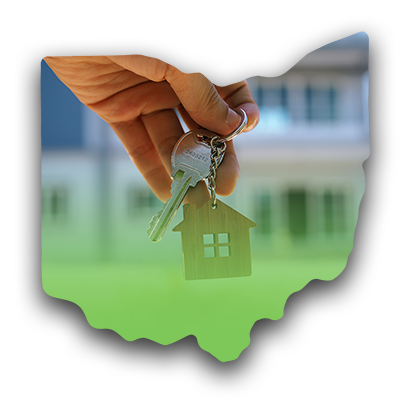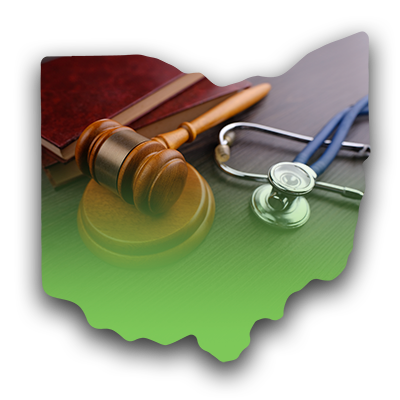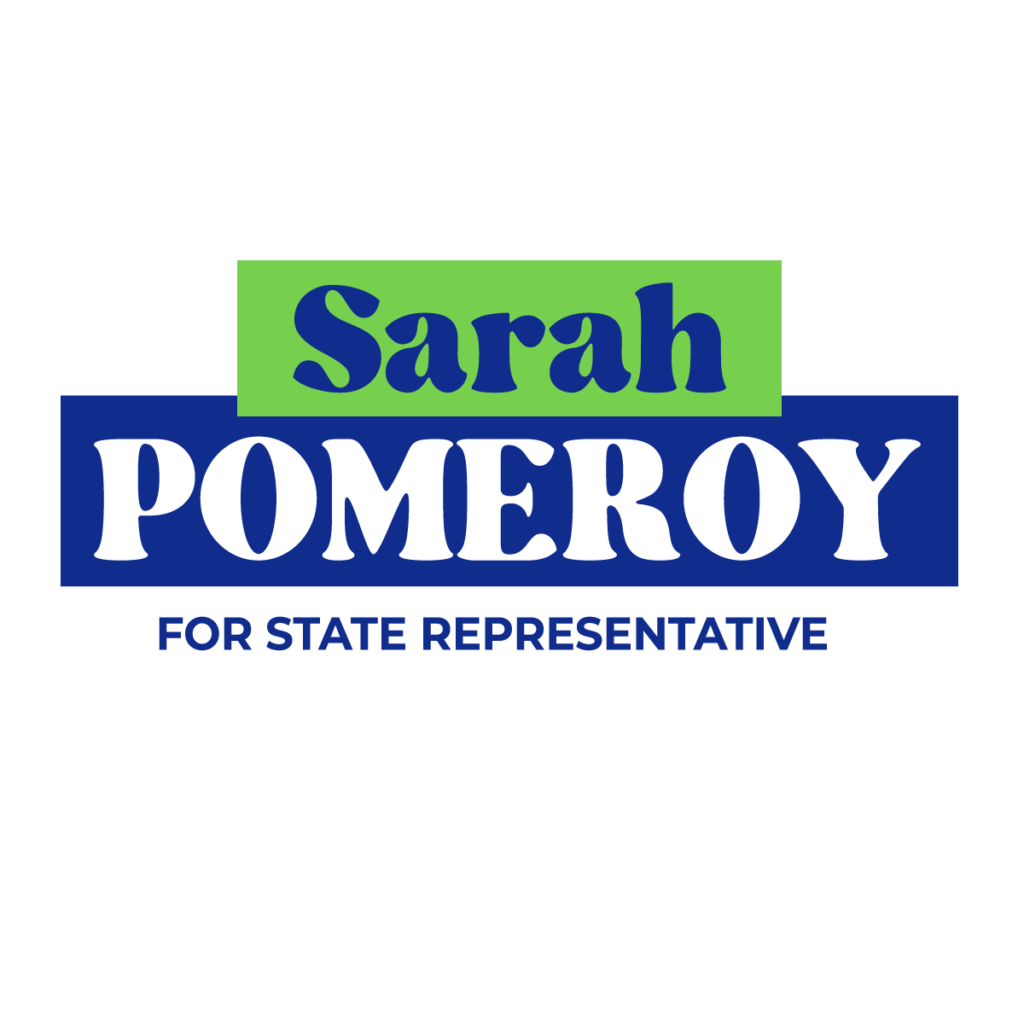
SARAH POMEROY
SARAH POMEROY
is the Democrat for positive change in
DISTRICT 10
DISTRICT 10
Sarah's Platform
Economic Development
Central Ohio is one of the fastest growing regions in the country. We’re experiencing rapid investment in terms of major corporations expanding (Intel, Amazon, Honda) and expect the population to gain another half million in the next 15 years. This growth is exciting–but it presents a challenge to us all to make sure folks are prepared to fill these jobs, prepared to live, work, and play here in our District, and are not left behind. Equitable growth is key–and is achievable if we focus on how our residents are educated/trained and on policies that also support women and families–which then attract folks that will be needed to fill these jobs.
To this end, I support policies including tax incentives for companies building local and hiring local and supporting Ohio-based businesses and our local unionized labor force. I believe in partnering with corporations and unions not only in the physical development of the District but also the human development that will be needed for this economic growth: housing to build, transportation infrastructure to implement, people to train for the incoming jobs, and educators to support throughout this process. We should invest in small business development supports and grants with a focus on historically marginalized folks–women, minorities, persons with disabilities, lower socio-economic status, and those without a college education. Finally, I support programs for working families including paid family leave, universal pre-K and afterschool program support, and incentives for businesses to provide a living wage.
Housing
Central Ohio is facing a housing crisis at every level–lack of available housing, lack of affordable housing, a need to preserve existing housing, and a need to support families aging in place in retaining generational wealth wrapped up in their homes.
I’ve witnessed firsthand the effects of out-of-state landlords viewing their affordable housing complexes as a line-item on a budget. I’ve seen our nonprofit community fight valiantly to make too-few dollars stretch to take care of our unhoused and housing-insecure families. We need more housing, and I know more than most that housing succeeds most when it’s built, owned, and/or managed by local folks, where the community is a part of the development process and has the infrastructure to engage new residents, when tenants know their rights and have a connection with their management and their community, and where municipal entities (police, code, health) make decisions with all these folks at the table.
If elected, I support funding more housing built at every level (multi-family, condominium, and single family homes), with an emphasis on supporting local/Ohio businesses through incentives to be the builders, and eventual owners and managers of these properties while combating wholesaler LLCs buying up single family homes. I support policies to encourage the occupancy of vacant housing (i.e. through credits for turning vacancies into occupied or owner-occupied houses).
Reimagining Public Safety
Public Safety is so much more than policing, and we must reframe it as such not only to better serve the residents of District 10, but also to alleviate burdens place on law enforcement that can be solved by better social supports and investment in communities (and thus allowing law enforcement respond when truly needed).
Safety is comprehensive: It is having an afterschool program for kids to continue to learn and be mentored. It is supporting health care facilities who do not have enough treatment beds for those struggling with opioid addiction. Safety is having a stronger transportation infrastructure to enable folks to get to work in less time. It is having a social-work led outreach team for non-violent calls for police service. Safety is being able to walk down the street without fearing going by the gas station with open air drug sales. Safety is implementing these types of support so businesses can go about their business and police can quickly respond to a corner drug sale, a domestic violence call, or to a car theft. Safety is bringing together law enforcement officers, business owners, and community leaders while in training so they can understand each other and learn what support the community may offer to a victim or a perpetrator of a crime.
Residents overwhelmingly just want to feel safe–and the city and state have a responsibility to deliver that safety. Safety will include police, trained in the struggles facing the community and adequately staffed to respond to their needs. It will include investment in initiatives that address the root causes of crime, especially the lack of basic needs of housing, education, and a good job. It will include a collective trust building between government institutions and communities of color who’ve been marginalized and overpoliced. That trust building only starts with policies that address safety as described above–and not viewing safety through a single lens.
Promoting Democracy
I wholeheartedly support the efforts to enshrine in our State Constitution a Fair Districts process that eliminates politicians from the map-drawing process, and I will partner throughout my campaign to support the passage of that initiative because we cannot hope to have a representative democracy without some protection against politicians drawing self-serving lines. I would support any legislative efforts needed either to pass such an initiative as a law.
If the initiative passes, I support making the map drawing process as transparent as possible (public meetings requirements, publishing of reports/data/analysis, public disclosure of the backgrounds of all commission members). I also support working with the State Board of Education and Dept. of Education on implementing education on Ohio’s Redistricting Process into the curriculum for K-12 civic/government education, because so many folks do not understand this process, and access and fairness starts with transparency of process.
Ohioans should have a streamlined and accessible opportunity to participate in the democratic process. To this end, I support increasing access to our government and to voting including in the following ways: (1) allowing for virtual testimony at the Statehouse for better accessibility in the legislative process; (2) prohibiting and/or restricting voter roll purges by the Secretary of State, at least without adequate notice to the voter; (3) comprehensive voter registration opportunities at different government access points–motor-voter registration, at tax-filing time, within the county court systems, when recording a housing deed; (4) automatic and/or same day voter registration; (5) expanded access to early vote opportunities like multiple drop-boxes or multiple early vote centers; and (6) enhancing civic education in K-12 schools to focus specifically on Ohio election laws and procedures and on registering late-high school students to vote.
Climate Change
Climate change is the most existential issue for Ohio not only because of how it underpins fundamentally what every person needs–safe food/water sources, energy to heat our homes, jobs of tomorrow, clean spaces to work and play–but also because left unchecked, it disproportionately affects the most marginalized of our communities, and it will likely displace thousands from other areas of the country, many of whom will seek to move to more palatable environments like Ohio.
My policy strategy would be the following to mitigate the effects of climate change and prepare Ohio for larger national consequences of climate change:
- Tax incentives for bringing clean energy companies to Ohio (and the subsequent education investments so that our workforce can support those jobs), and additional funding to municipalities that continue transitioning their energy grids to renewable energy. I also believe in investing in education in renewable energy options for both individual households and also businesses operating in the state so that both are empowered to make sustainable energy choices.
- Investment in cooling infrastructure (i.e. green roofing, reflective pavements, larger tree-coverage) in under-resourced neighborhoods, where temperatures are on average higher than wealthier neighborhoods
- Investment in electric vehicle infrastructure–most folks report one of the largest barriers to EV ownership is concern over the charging infrastructure, and so our communities need to invest in those systems now (especially while there are significant federal $$ going to support purchases of EVs)
- Investment in building and upgrading housing infrastructure using sustainable energy resources, safer materials, and, especially for affordable housing units, with structures located a safe distances away from potential environmental hazards.
- Increase penalties for dumping sewage/toxic chemicals/fertilizers into our public waterways, while also increasing funding to public water system infrastructure improvements (including investment in treating our waterways suffering from any such waste and contaminants).
- Working with both the State Board of Education and Ohio Dept. of Education, examine ways to incorporate our state/metro parks as part of student curriculum (accompanied with funding to support such integration), and therefore to increase access of our parks systems for marginalized folks who are often already hard-pressed to access parkland in their communities.
- All too often, we are not studying the disparate effects of climate change on our BIPOC communities, who have historically been victims of environmental racism that manifests through toxic water pollutants, lead paint in their housing, and higher neighborhood temperatures. I support investment in research into the historical presence and impact of environmental racism, which can then provide guidance on further strategies to support our increasingly stressed system as folks move toward friendlier climates from the coasts/southern U.S.
Personal Freedoms
I believe every person has a right to their privacy in their home, their families and how they build them, and their bodily autonomy. Our government should encourage and protect those freedoms, not seek to impose its will on decisions best left, for example, to a woman about her reproductive health or to a family about the medical needs of their trans child.
Upholding these rights requires also ensuring that all individuals are treated without discrimination based on their race, ethnicity, religion, gender, sexual orientation, disability status, or any other characteristic–but also on recognizing the need to rectify past discrimination based on any of these categories.
Furthermore, to adequately protect these personal freedoms, we must ensure that our legal processes and institutions are fair, transparent, and accountable–because the rule of law is the backbone against which we can protect every right and freedom inherent in our existence and participation in our society.
I will do everything I can to protect people’s rights to build and support their families as they see fit, to their bodily autonomy, and to fully participate in our democracy – all three of which are under attack by our legislature, which should instead be focusing on what Ohio families need the most.
Education
In the face of forces that seek to ostracize, miseducate, and take advantage of others, educating the next generation of District 10 residents is imperative both in preparing them for the jobs of tomorrow but also in enriching them in finding their passions and becoming well-rounded and engaged members of our community.
I support promoting equal access to quality education regardless of your zip code, disability status, or personal struggles–and in fact our education system has a responsibility to work alongside our other institutions to support the whole child and family, for example by integrating our parks or public health system directly with schools and their families. Inherent in this work is addressing educational disparities–including rectifying our state’s unconstitutional school funding mechanism–supporting teachers so they have the tools and compensation worthy of the important work they do, and investing in especially early childhood education and afterschool support systems so that even our most vulnerable can continue to thrive.
Support for our education system also cannot be solely focused on any one category of career–Central Ohio has robust vocational and technical job opportunities, and so our system must continue to invest in vocational training, apprenticeships, and other opportunities that lead to rewarding careers. Our business community will have many needs in the coming decade as it rapidly expands, and there are many partnerships available between our schools and future opportunities. Finally, protecting opportunities for students to participate in an arts curriculum simultaneously with the rest of their studies will only serve to expand their creativity and make all the more vibrant the culture of Central Ohio.
Education is vital for promoting critical thinking skills and guiding individuals to make their own informed choices. Banning books limits educational potential, undermines principles of a free and democratic society, and denies students the opportunity to engage with complex issues in a thoughtful and constructive manner. I instead advocate for an inclusive approach that encourages dialogue, understanding, and the free flow of information. It is through respectful conversations and the exposure to diverse perspectives that we can build a more informed, tolerant, and resilient society. We must learn to listen, exchange information and opinions, and respect each other in that process–and our schools are the best foundation for fostering this skill in our youth–or else we are left only with divisive discourse that does not recognize each person’s inherent dignity and self-worth.







